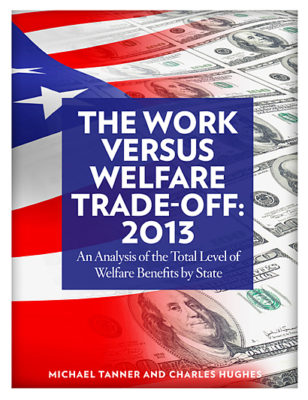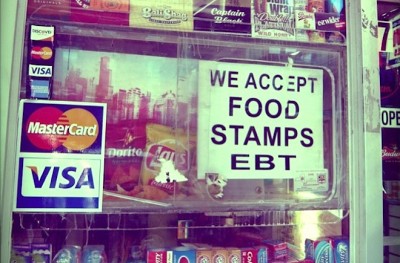|
Listen To The Article
|
It is financially more lucrative to remain on welfare than work an entry level job in 35 states and the District of Columbia, according to a new CATO Institute study.
Entry-level or minimum wage jobs once were the positions which high school and college kids filled. Today, fast food and big box retail customers will see just as many, if not more, adults in such low-wage jobs. A lack of education and training is a growing problem in the work force, coupled with an entitlement mindset that spans multiple generations.
The Cato study said minimum wage pays more than work, even when accounting for the Earned Income Tax Credit. In 13 states, welfare pays more than $15 an hour, the study said. The federal government currently operates 126 different welfare programs, in addition to services offered at both the state and local level. In nine states — Hawaii, Massachusetts, Connecticut, New Jersey, Rhode Island, New York, Vermont, New Hampshire, and Maryland — as well as Washington, D.C., annual welfare benefits are worth more than $35,000 a year, the Cato Institute’s Michael D. Tanner wrote in an analysis of the Cato study.
“Welfare benefits continue to outpace the income that most recipients can expect to earn from an entry-level job, and the balance between welfare and work may actually have grown worse in recent years,” the study said. The current welfare system provides such a high level of benefits that it acts as a disincentive for work.
Discover one family’s experiment to consume only what was local, used, homegrown, or homemade
“If Congress and state legislatures are serious about reducing welfare dependence and rewarding work, they should consider strengthening welfare work requirements, removing exemptions, and narrowing the definition of work. Moreover, states should consider ways to shrink the gap between the value of welfare and work by reducing current benefit levels and tightening eligibility requirements.”
Those who called Glenn Beck a fear-monger for sharing the Cloward-Piven socialist strategy of overwhelming the system may soon have to choke on their own words. In 1966 Frances Fox Piven and Richard Cloward called for Americans to overload the welfare system in order to force a national system of guaranteed annual income to take its place and end poverty.
 Not everyone is college material, or seeks to go into a field which would require a college degree in the first place. An advanced academic education is not required to become a plumber, electrician, mechanic, cosmetologist, or a host of other respectable professions. Technical programs at public high school have been fading away for more than a decade. Trade programs for average or below-average students provide certifications and the skills necessary to make a good living and steer American youth away from a life of dependency.
Not everyone is college material, or seeks to go into a field which would require a college degree in the first place. An advanced academic education is not required to become a plumber, electrician, mechanic, cosmetologist, or a host of other respectable professions. Technical programs at public high school have been fading away for more than a decade. Trade programs for average or below-average students provide certifications and the skills necessary to make a good living and steer American youth away from a life of dependency.
As the number of Americans surviving from the cradle to the grave on the taxpayers dime has significantly increased over the past three decades, so have a multitude of other negative aspects to society. As previously reported by Off The Grid News, a recent Pew Research Center family study revealed the number of single mothers, teen moms, child abuse cases, child death cases, and domestic violence convictions have increased, as well.
Best-selling libertarian author Charles Murray said the societal and cultural impact of generational dependency is significant.
“A man who is holding down a menial job and thereby supporting a wife and children is doing something authentically important with his life,” Murray said. “He should take deep satisfaction from that and be praised by his community for doing so. If that same man lives under a system that says the children of the woman he sleeps with will be taken care of whether or not he contributes, then that status goes away. I am not describing a theoretical outcome, but American neighborhoods where once working at a menial job to provide for his family made a man proud and gave him status in his community, and where now it doesn’t.”
 Off The Grid News Better Ideas For Off The Grid Living
Off The Grid News Better Ideas For Off The Grid Living





